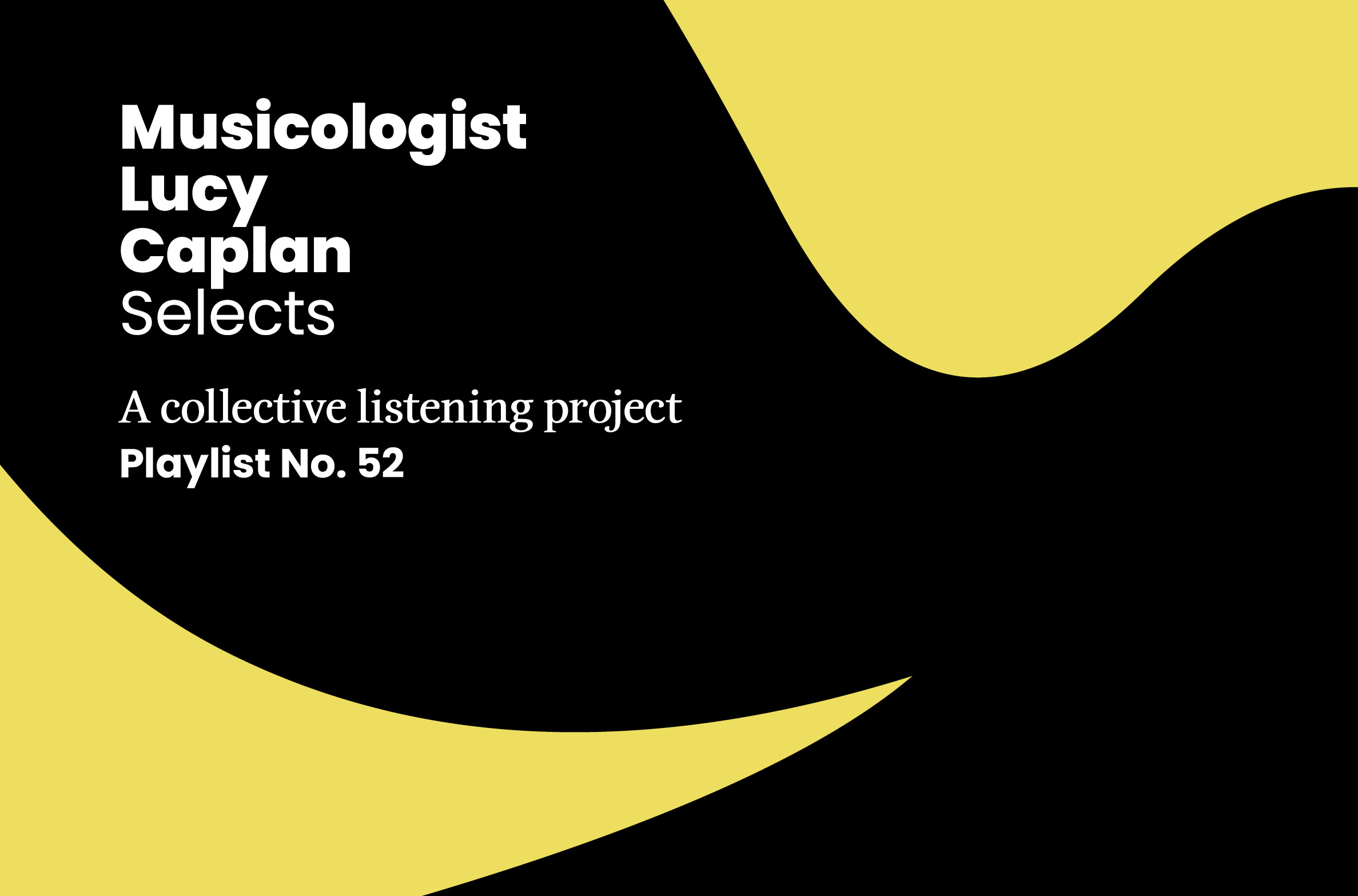Welcome to our 2024-2025 season!
Collective Listening Project
Musicologist Lucy Caplan Selects
Playlist No. 52
About the Playlist
April 8, 2021

One of the wonderful aspects of our Collective Listening Project, launched over a year ago at the start of the pandemic, has been the opportunity to bring a new voice to the many members of Princeton University Concerts’ extended family. This week’s playlist shines a spotlight on a voice that is likely familiar to many of you, yet who has not yet been properly introduced—our beloved program-note writer Lucy Caplan. Lucy has curated a playlist rooted in “Snapshots of Memory,” drawing together a diverse bouquet of 20th and 21st century works that tie into musical memories that, for her, “spring up like blooming flowers.”
Snapshots of Memory: a Collective Listening Project Playlist
By Lucy Caplan
KATHERINE A. GLEN “Twilight” (1915)
Roland Hayes, tenor
One of the wonders of streaming services like Spotify is that recordings that were previously difficult to access—found only in specialized archives or private collections, or in perilously fragile condition—are now available almost instantaneously. The 2019 collection Black Swans: Earliest African-American Classical Stars is one standout example. Named after the first African American recording company, Black Swan Records (est. 1921), the album includes tenor Roland Hayes’ 1918 performance of the art song “Twilight,” by the Portland, Oregon-based composer Katherine A. Glen. Hayes’ voice is tender, almost delicate, matching the graceful affect of the song.
FLORENCE PRICE “Snapshots: Moon Behind a Cloud” (1949)
Samantha Ege, piano
Like Black Swans, Fantasie Nègre: The Piano Music of Florence Price traces rich connections between past and present in Black classical music. In an essay that accompanies the album, musicologist and pianist Samantha Ege writes that the project is “my realisation of a history that I have longed for, and to which I now belong.” Ege’s rendition of Florence Price’s “Moon Behind a Cloud,” part of a suite of three evocative “Snapshots,” is elegant and sweetly impressionistic.
CAROLINE SHAW “The Cutting Garden” (2015)
Attacca Quartet
Impressionistic echoes also anchor “The Cutting Garden,” the second movement of Caroline Shaw’s 2015 work for string quartet, Plan & Elevation. Memories of string quartets past—including works by Ravel, Mozart, and Shaw’s own Entr’acte—spring up, like blooming flowers before they are cut and assembled into pretty arrangements.
REENA ESMAIL “Darshan” (2018)
Vijay Gupta, violin
Reena Esmail’s “Darshan”—the title means “seeing” in Hindi—is an emotionally intense and deeply beautiful exploration of grief. It is one of a suite of five pieces, which Esmail will compose over the course of the next several years. The piece evokes the sound of the sarangi, a bowed Hindustani instrument, while also recalling solo violin music in the Western classical tradition, like Bach’s Sonatas and Partitas.
LEONARD BERNSTEIN “Somewhere” (1957)
Cécile McLorin Salvant, voice and Sullivan Fortner, piano
One of the most-covered songs in the twentieth-century American songbook, “Somewhere” might seem like a predictable choice for the phenomenally talented jazz singer Cécile McLorin Salvant. Yet here, it is anything but. In this performance, from the 2018 album The Window, McLorin Salvant and Fortner offer a radically unusual interpretation, one which refuses nostalgia. Instead, they compel us to listen to music we think we know and hear something absolutely new.



